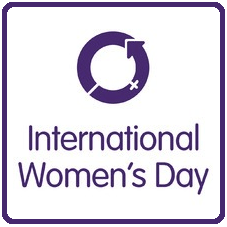By guest contributor Dr Soumya Swaminathan Women and girls account for 50% of the population. Despite this, health systems are ill-equipped to…
Highlighting the Plight of Afghan Women: A call to action

By guest contributors Mohammad Yasir Essar, Brianne O’Sullivan, and Yalda Ghulam
On March 8th, the world commemorates International Women’s Day. This day signifies the contributions and achievements made by women around the world in various sectors. However, it is also a stark reminder of the adversities still faced by many women around the world who exist within contexts of deep oppression and victimization. Since the August 2021 takeover of the Taliban in Afghanistan, restrictions have been imposed on the rights of Afghan women, including their right to access education, employment, and healthcare. In this blog post, we highlight the ongoing struggle for gender equality and human rights of Afghan women and urge readers to not only celebrate the outstanding accomplishments of the women around them, but to also advocate for the rights of Afghan women on this special day.
As enshrined in Article 26 of the Universal Declaration of Human Rights, “Everyone has the right to education.” The Taliban’s ban on the education of women and girls in Afghanistan has induced a social and economic “domino effect” in Afghan society and will continue to do so unless significant political changes can take place. Over previous decades, women and girls have made major contributions to the social and economic development of Afghan society. For example, Afghan Women Chamber of Commerce and Industry (AWCCI) was established by a group of Afghan business women to empower Afghan women in economic participation. This initiative provided a venue for Afghan women to engage in entrepreneurship. However, the current situation in Afghanistan has already begun reversing progress, diminishing women’s abilities to maintain and develop new skills, while undermining their value and contributions to community building. According to the World Economic Forum, limitations on women’s employment in the private sector may lead to a further $1.5 billion loss of output by 2024.
Most notable perhaps, are the contribution of Afghan women to the healthcare system. A prominent example is the Afghanistan Midwives Association. The association was established in 2002 with the aim of enhancing the quality of maternity and newborn care in the country. The association educates and supports midwives, who often serve as the sole healthcare providers for women and children in remote areas of the country. International organizations and NGOs have consistently threatened to pause their missions in Afghanistan due to a lack of engagement with women. For instance, the majority MSF medical staff at the maternity hospital in Khost province are women. They assist with the delivery of 1800 babies every month. If the restrictions continue to be fully enforced, more women would be faced with severe, and perhaps insurmountable barriers to antenatal, labour, and postnatal care.
On this International Women’s Day, we call on all individuals and organizations to not forget the plight of Afghan women. The imposed restrictions will delay progress towards achieving the Sustainable Development Goals and stall advances towards health, education, and employment equity for women and girls. We urge universities around the world to offer scholarships (in person and remote) to Afghan women and provide a venue for them to resume their education. We call on Afghans in the diaspora and human rights activists to continue demanding the reinstatement of basic human rights for Afghan women. The celebration of International Women’s Day can only be uplifted by coming together as a global community to support the rights of women and girls in Afghanistan and ensure that they are once again an independent and thriving part of human society.
About the authors:

Mohammad Yasir Essar was a former refugee from Afghanistan. He holds an MSc in Global Health from McMaster University. He is a passionate voice in the field of global health. As an author and educator, he explores the dynamic landscape of Global Health to educate and inspire young professionals.

Brianne (Brie) O’Sullivan is a PhD candidate at Western University in Canada studying in the field of global health innovation. She also works as a policy analyst and youth engagement lead at Canada’s Office of International Affairs for the Health Portfolio within the Public Health Agency of Canada. Brie is a passionate advocate for global health equity and human rights.
Yalda Ghulam is a graduate of Dentistry from Kabul University of Medical Sciences and a Public Health enthusiast. She’s passionate about health equity.
Disclaimer: Views expressed by contributors are solely those of individual contributors, and not necessarily those of PLOS.